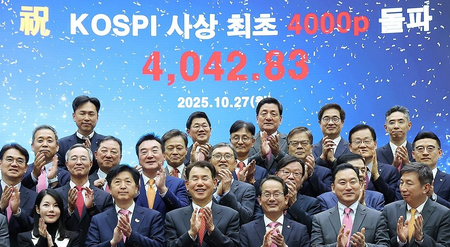
New Delhi, Nov 26 (IANS) The quantum of delayed payments to MSMEs has steadily declined from Rs 10.7 lakh crore in 2022 to Rs 7.34 lakh crore by March 2024, indicating a positive impact of policy measures, according to a new report.
The report provides a comprehensive update on the critical issue of delayed payments to Micro, Small, and Medium Enterprises (MSMEs) in India, quantifying the value locked in delayed receivables at Rs 7.34 lakh crore (inflation-adjusted) as of March 2024, down from Rs 8.27 lakh crore in 2023 and the peak estimate of Rs 10.7 lakh crore in 2022.
The report by Global Alliance for Mass Entrepreneurship (GAME) and Federation of Indian Micro and Small & Medium Enterprises (FISME) and C2FO India was launched in the presence of V. Anantha Nageswaran, Chief Economic Advisor (CEA) and Ateesh Kumar Singh, Joint Secretary, Ministry of MSME.
Nageswaran said that “as noted in the report, not only is the due amount of the delayed payments coming down but also there has been progress in the invoices that are discounted on the TReDS platform, going from nothing to Rs 2.4 lakh crore and getting more and more businesses to onboard themselves. At the same time, we do appreciate that the issue of delayed payments is an important one and the efforts cannot be slackened at this stage and we need to keep at it.”
Commenting on the report, Singh said, “On access to credit, the central way to describe the problem for MSMEs is adequate credit, timely credit and affordable credit. But to figure out adequate, timely and affordable credit, we need to do a very strong deep dive into the system because the gap is not just related to the credit side, the gap is in several shapes, sizes and elements.”
He further elaborated that “there is a gender gap in respect to the credit, there are statutory gaps, there are regional gaps, there are sectoral gaps. It is a very important and certain requirement to move forward and find realistic, customised and actual solutions.”
The report calls for a coordinated, multi-pronged policy thrust. It urges strict enforcement of timelines and penalties through Section 43Bh, along with public disclosure of chronic defaulters. Scaling up TReDS as the mainstream platform for MSME payments, integrated with GST and Udyam data, is seen as critical.
The report advocates establishing faster and final dispute resolution mechanisms by expanding and strengthening Facilitation Councils and enabling institutional arbitration. It emphasizes reforming the Special Mention Account (SMA) classification to prevent premature choking of viable small businesses.
Moreover, expanding digital credit using GSTN and UPI data for accessible, cash-flow-based lending is necessary. Lastly, the Samadhaan portal needs realignment through automation, standard contracts, and transparent, real-time disclosure, said the report.
–IANS
sps/na




